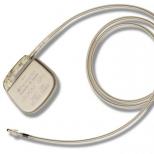Vegetative vascular dystonia in adults - symptoms
Vegetovascular dystonia (VVD) is not a disease that can be determined by the results of tests, but rather a collection of certain symptoms. They do not lead to serious consequences, but significantly reduce the quality of life. The essence of this pathology is to reduce the functionality of the vessels located in the cervical spine. This provokes a violation of blood circulation and imbalance of all body systems. But what symptoms can be suspected of VSD?
What is vegetative dystonia
The autonomic nervous system is a regulatory mechanism that controls the mental and physical life of the body. This system maintains blood pressure, heart rate, respiration, muscles, etc. When an imbalance appears at some level of this complex chain, a condition occurs, which is called vascular dystonia.
On a note! In the international nomenclature, there is no such diagnosis, and a complex of symptoms called VVD is considered as the result of somatic or psychological disorders.
What provokes the development of vegetovascular dystonia
The formation of VVD often starts in adolescence. In the process of puberty, under the influence of hormonal changes and psychological instability, there is a violation of the well-organized work of the body.
The development of VVD can take place at a more mature age. For example, during the first pregnancy, early menopause, as a result of a head injury, due to prolonged cervical osteochondrosis.
In addition to the above causes, VVD can cause:
- hereditary predisposition.
- A sharp change in climatic conditions.
- Diseases of the nervous system.
- Pathologies of the gastrointestinal tract.

Clinical manifestations of vegetovascular dystonia
The diagnosis of VVD is established on the basis of the patient's characteristic rednecks and his state of health. To date, almost 150 symptoms and more than 30 clinical manifestations of this pathology have been established. All of them are associated with numerous complaints that directly depend on the work of the hypothalamic structures:
- Disorders of the cardiovascular system: a sharp drop / increase in pressure, arrhythmia, heart failure, a feeling of heat on the face, cold extremities.
- Problems with the respiratory center: shortness of breath, frequent attacks of suffocation of a psychological nature.
- Violation of the central nervous system: fainting, lack of sleep, anxiety, panic attacks, migraine, daytime sleepiness, decreased ability to work, internal trembling, dizziness.
- Gastrointestinal dysfunction: nausea, constipation / diarrhea, heartburn, pain, lack of appetite.
- Violation of the genitourinary system: baseless itching of the external genital organs, frequent urination, chronic inflammation of the bladder.
The mentioned symptoms are superficial and can manifest themselves in different ways in people. But there is a "gold standard", which is manifested by several symptoms at once. And if all of them are present, the diagnosis of VVD is made with full confidence.
So, what should worry you if you have more vegetovascular dystonia:
- Constant problems with sleep: during the day you fall asleep on the go, and at night you can’t sleep.
- Inability to work normally: you cannot concentrate, gather, get tired quickly.
- Apathy: your psycho-emotional background is unstable, you either cry or laugh, sometimes you are on the verge of depression.
- Weather sensitivity: you suffer from headaches before rain, or pressure drops before a cold snap, your joints hurt when the atmospheric pressure changes.
- Intolerance to heat or cold.
- Cyanotic color of the skin, red dermographism (reddening of the skin in response to mechanical stress).
- Swelling and hyperfunction of the sweat glands: your legs, face, fingers swell; you sweat a lot even in a cool room.
- Difficulties with breathing: you began to notice that you have a "lump in your throat", you do not have enough air, you feel dizzy.

Treatment of VVD is reduced to the elimination of existing symptoms and the normalization of lifestyle. Eat right, exercise, don't worry about trifles, then you won't be afraid of VVD.





